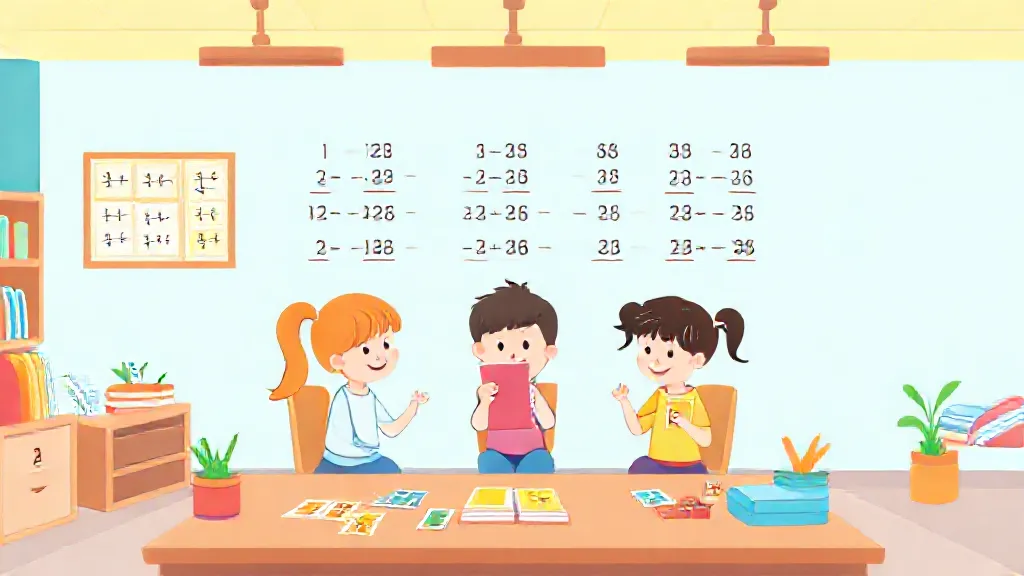Multiplication tables are a foundational aspect of mathematics education that often goes overlooked in their importance. Mastery of multiplication tables is essential for achieving math fluency, which is the ability to perform mathematical operations quickly and accurately. This fluency is not just a matter of convenience; it plays a critical role in a student’s overall mathematical understanding and success in more advanced topics.
The Role of Multiplication in Mathematical Operations
Multiplication is one of the four fundamental operations in arithmetic, alongside addition, subtraction, and division. It serves as a building block for more complex mathematical concepts, such as fractions, decimals, and algebra. When students have a firm grasp of multiplication tables, they can perform these operations more efficiently.
For instance, knowing that 6 times 7 equals 42 allows students to quickly solve problems that involve these numbers without needing to rely on calculators or other aids.
Building Confidence through Mastery
One of the most significant benefits of mastering multiplication tables is the boost in confidence it provides students. When learners can quickly recall multiplication facts, they feel more competent in their math skills.
This confidence can lead to greater participation in class, increased willingness to tackle challenging problems, and a more positive attitude toward mathematics as a whole. As students progress through their education, this foundational confidence can have lasting effects on their academic journey.
Real-World Applications of Multiplication
Understanding multiplication tables is not only crucial for academic success; it also has practical applications in everyday life.
From calculating expenses while shopping to determining travel times based on speed and distance, multiplication is a skill that students will use throughout their lives. By mastering multiplication tables, students are better equipped to handle real-world situations that require mathematical reasoning and problem-solving skills.
Historical Context and Educational Standards
Historically, multiplication tables have been a staple of mathematics education for centuries.
They have been taught in various forms across cultures, emphasizing their universal importance. In contemporary education, standards such as the Common Core State Standards in the United States highlight the significance of fluency in multiplication and division. These standards aim to ensure that students achieve a certain level of proficiency by the end of their elementary education, underscoring the value placed on multiplication mastery.
Strategies for Teaching Multiplication Tables
There are numerous strategies that educators can employ to teach multiplication tables effectively. Techniques such as using visual aids, interactive games, and repetitive practice can enhance retention and recall. Additionally, incorporating technology through apps and online resources can make learning multiplication more engaging for students.
It is essential for teachers to create a supportive environment that encourages practice and celebrates progress in mastering multiplication tables.
The Link Between Multiplication Fluency and Higher Math Skills
Research has shown a direct correlation between fluency in multiplication and success in higher-level math courses. Students who struggle with multiplication often find themselves at a disadvantage when they encounter algebra, geometry, and other advanced topics.
This connection highlights the importance of ensuring that students have a solid foundation in multiplication before moving on to more complex mathematical concepts.
Encouraging Family Involvement in Learning
Parents can play a significant role in reinforcing multiplication skills at home. Simple activities such as flashcards, multiplication games, and real-life math problems can help students practice their multiplication tables in a fun and engaging way.
By encouraging family involvement, students are more likely to develop a positive attitude toward math and persist in their learning efforts.
Conclusion: The Lifelong Benefits of Mastering Multiplication
In conclusion, multiplication tables are essential for math fluency, providing students with the tools they need to succeed academically and in everyday life. By emphasizing the importance of mastering multiplication, educators and parents can help foster a generation of confident, capable mathematicians.
The skills gained from understanding multiplication will serve students well beyond their school years, reinforcing the critical nature of this foundational mathematical concept.
